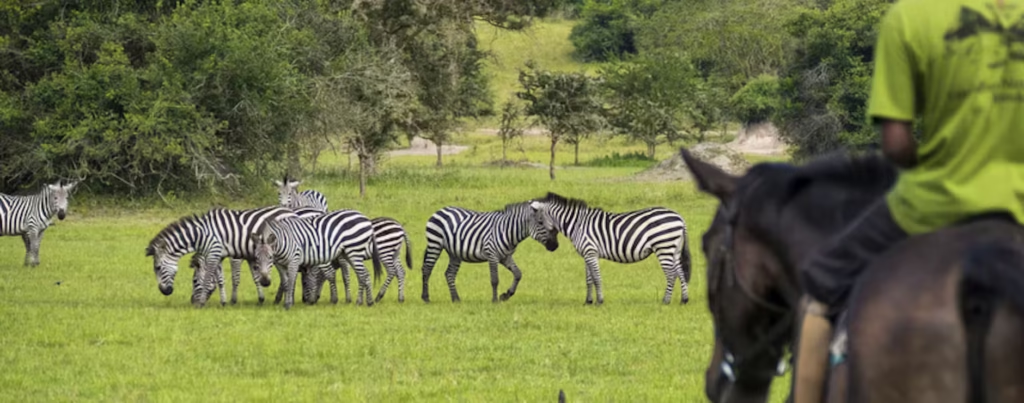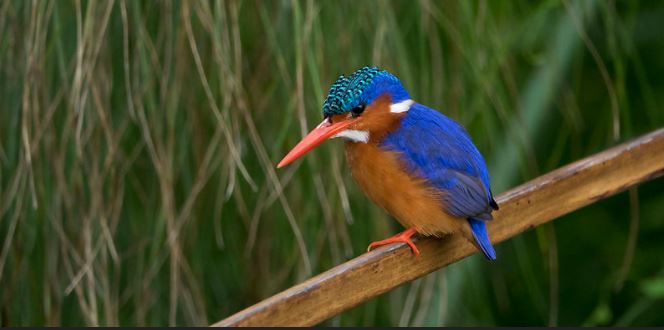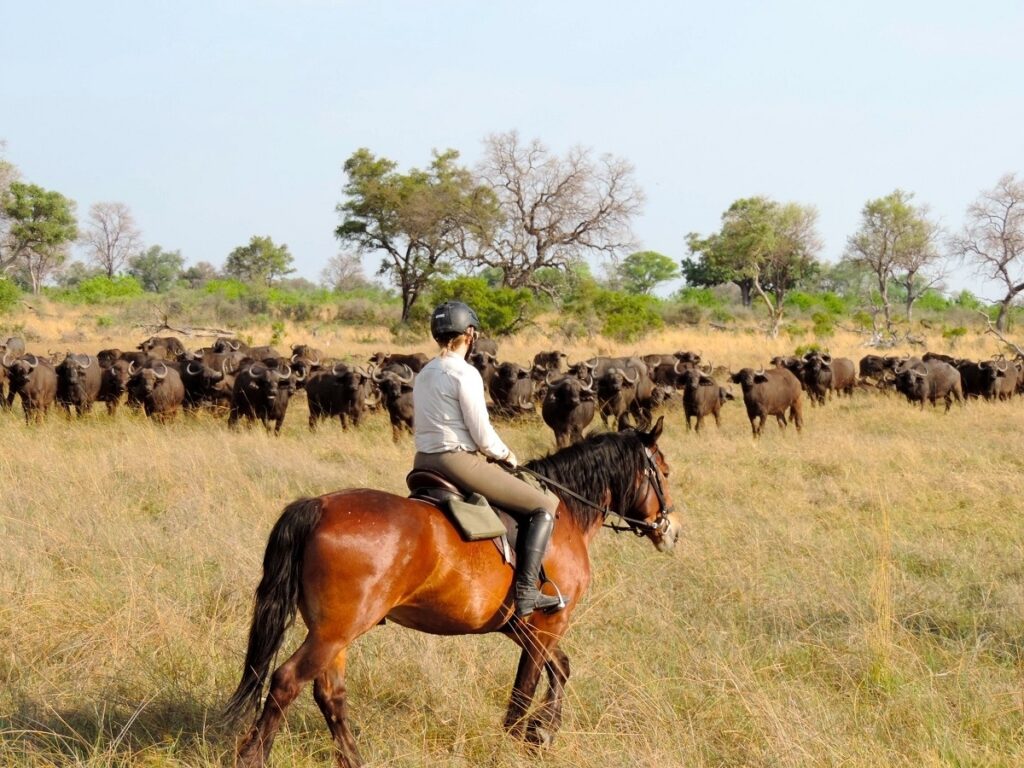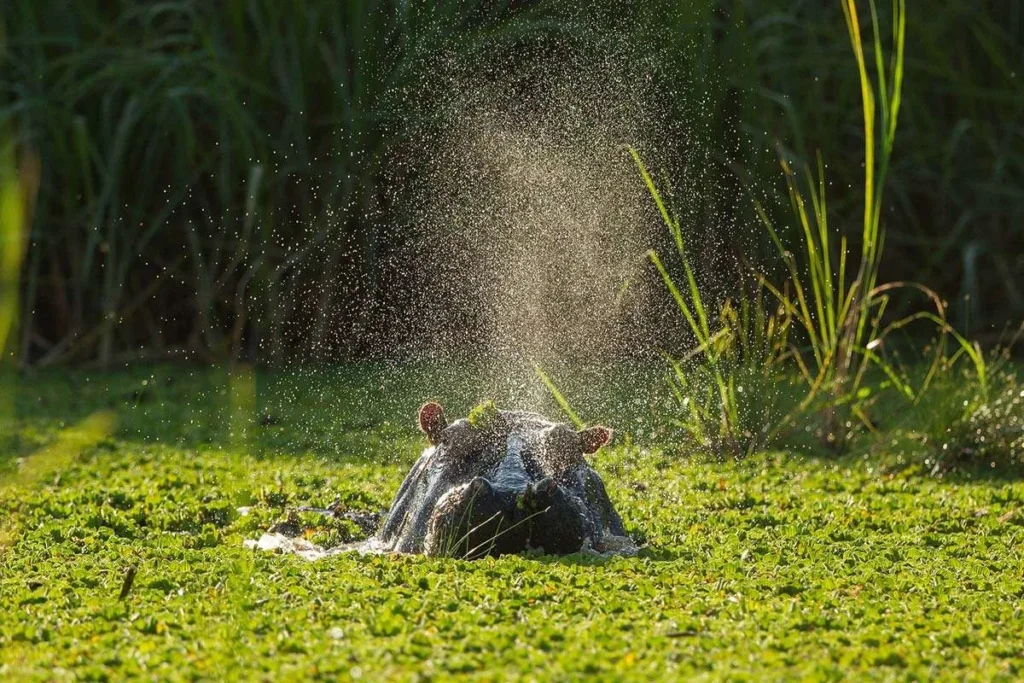Lake Mburo National Park is one of Uganda’s most scenic parks, compact in size and most accessible from the heart of Kampala city. It is a wildlife-rich destination, home to a huge concentration of antelope families. This protected area is distinct from other Uganda safari parks not only for its abundant wildlife but also it being a lake-dominated.
Location: Where is Lake Mburo NP found?
Lake Mburo National Park is lying in the Western side of Uganda, close to the main city center. It is located between Mbarara city and Kampala capital, about 228 km, approximately 4-5 hours’ drive in a 4×4 tourist vehicle. The park is set within Nyabushozi County, Kiruhura District, and Mbarara is the nearest city.
In 1983, Lake Mburo NP was officially designated a National Park and its boundaries extend covering only 370 sq.km of land area. Initially, it was founded as a controlled hunting area in 1933 and it was upgraded to be a Game Reserve in 1963. The area where the park currently sits was occupied by the Banyankole Bahima pastoralists who largely depend on Ankole cattle keeping.
Main Attractions
Wildlife
The animal/wildlife species in Lake Mburo NP account for over 63 mammal species and 350 bird species. The various mammal species to look out for on Uganda safaris in this park include the common elands, impalas, zebras, leopards, waterbucks, bushbucks, Rothschild giraffes, warthogs, African/cape buffaloes, lion, jackals, genets, serval cats, civets, and others. The park’s diverse animal species thrive within its distinct habitats including forested gorges, rocky outcrops, riparian woodlands, and others.

Birds
The bird check-list for Lake Mburo National Park includes 8 of the 12 Lake Victoria Basin biome species. The birding expedition in this park presents plenty of bird watching opportunities and myriad of birds to sight include the red-winged francolins, tabora cisticolas, papyrus gonoleks, carruthers’s cisticolas, blue-headed coucal, blue-breasted kingfishers, yellow-rumped tinkerbird, mosque swallow, hairy-breasted barbet, greater painted-snipe, brown-chested lapwing, African finfoot, bare-faced go-away bird, shoebill stork, African scops owl, temminck’s courser, scimitar bill, white-headed and black billed barbet, harlequin and blue quails, brown parrot, blue-spotted wood dove, African wattled plovers, lesser and great swamp warblers, rufous napped larks, black-bellied bustard, buff-spotted,
The goliath herons, black-headed herons, common squacco, black crakes, pelicans, African fish eagles, pink-backed cormorants, purple herons, the Southern ground hornbills, and more. These thrive in the park’s vast grassy valleys, thickets, Egyptian goose, wetlands and woodlands.

Lakes
Lake Mburo NP is largely dominated by Lakes and Lake Mburo is the largest of the 5 Lakes that exist in it. These beautiful lakes support a variety of aquatic species, especially hippos, crocodiles and water bird species.
Why visit Lake Mburo NP? Tourist Activities to do in the park
Boat/launch cruise
A boat or launch cruise in Lake Mburo National Park offers holidaymakers a great chance to encounter plenty of aquatic species. Abundant aquatic animals to be spotted include hippos, crocodiles and birds. Along Lake Mburo shores, there are many other species to be spotted including buffaloes, antelopes, and more.
Game drives
Safari game drives in Lake Mburo NP involve exploring the rich game tracks for 2-3 hours in a 4×4 safari vehicle with a pop up roof. The possible animal sightings on a safari game drive in Lake Mburo N/Park include klipspringers, zebras, oribis, giraffes, duikers, topis, Bohor reedbucks, waterbucks, buffaloes, and many more.
Birding
Lake Mburo National Park offers unmatched birding experience. It is home to 350 species of birds and they include several of acacia-dwelling birds. The expected bird species to be spotted include the blue-headed coucal, papyrus gonoleks, bare-faced go-away, black-collared barbet, African fin-foot, shoebill stork, yellow-rumped tinkerbird, mosque swallow, hairy-breasted barbet, greater painted-snipe, brown-chested lapwing, African finfoot, bare-faced go-away bird, shoebill stork, African scops owl, temminck’s courser, scimitar bill, white-headed and black billed barbet, harlequin and blue quails, brown parrot, painted snipe, pelicans, herons, and more.
Guided nature walk
Lake Mburo NP is one place where you can explore wildlife on foot. The guided nature walks guarantee exceptional views of faunal species such as elands, waterbucks, sitatungas, oribis, Kobs, bushbucks, topis and zebras.
Horseback riding
Horseback riding is an amazing experience that shouldn’t be missed on Lake Mburo National Park safari. This is done around Mihingo Lodge taking you deep inside the park while keeping an eye on plenty of animal species.

Quad biking is also enjoyable in the park offering view of the park’s breathtaking terrains, wildlife and floral species.
Cycling offers another distinct option of encountering wildlife in Lake Mburo NP rather than using a bike/bicycle.
Sport fishing- the park is dominated by lakes and Lake Mburo hosts 6 fish species including tilapia. Fishing adventures are best done at Mazinga.
The weather/best time to travel to Lake Mburo N/Park for a holiday
The average daily temperature record in Lake Mburo NP is 27 degrees celsius and 14 degrees celsius at night. The park an open destination all year long, but the dry season has proven to be the most favorable time or season to explore the park at ease. This is from June to September and December to February.
Getting to the park for a trip
By road: Lake Mburo NP is accessible along the Kampala-Masaka-Mbarara route and about 4-5 hours will be spent driving. By air, it is possible to also take a flight and you land at the airstrip in Mbarara. Note, the park entry fees are valid for 24 hours and payable at USD 40 per day (for foreign adults), USD 20 (children).
Where to stay
The best lodges to book for overnight stay while in Lake Mburo N/Park include budget, midrange and luxury options. They include Leopard Rest Camp, Mantana Tented Camp, Hyena Hill Lodge, Kigambira Safari Lodge, Rwakobo Rock, Rwonyo Rest Camp, Arcadia Cottages, Mburo Eagles Nest, Lake Mburo Safari Lodge and others.

